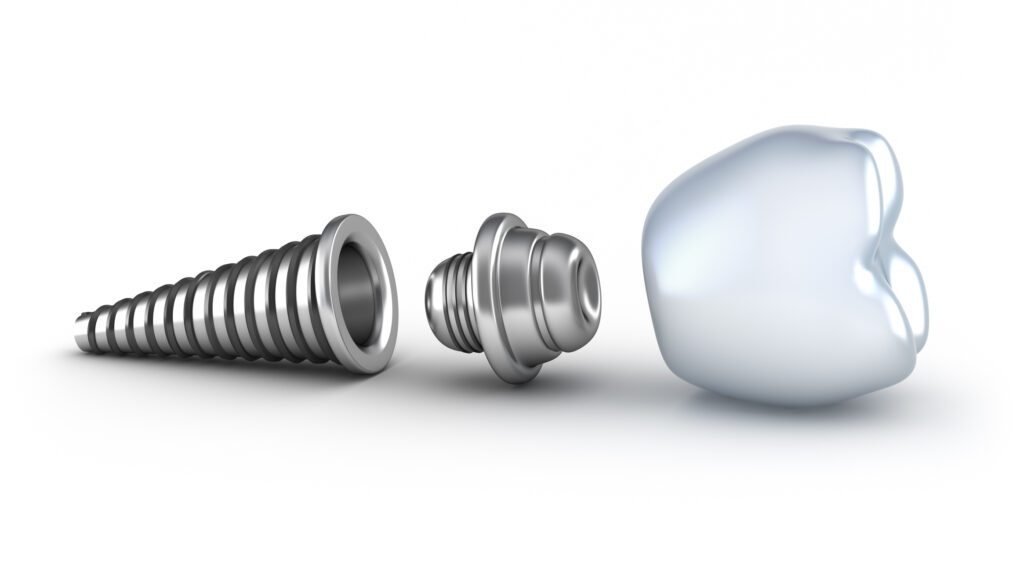Frequently Asked Questions About Dental Implants
Got a question about dental implants? Please read through our frequently asked questions to learn more about dental implants. If you don’t see your question here, please contact us during regular business hours.

How many teeth can dental implants replace?
Dr. Matthew Jenne can replace any number of teeth with dental implants. This versatile tooth replacement system can be customized to any patient’s needs. One missing tooth will simply require one implant and a custom dental crown. If you have multiple missing teeth, Dr. Jenne will come up with a personalized solution to replace your teeth. You will need anywhere from 2 to 8 implant fixtures per arch and a custom dental bridge or denture.
Will I have to go without teeth during my dental implant treatment?
You will not have to go without teeth during your dental implant treatment. In most cases, we can place a temporary dental restoration until you are ready for the permanent one. This will help you maintain your appearance and functionality while your dental implants integrate with your jawbone.
Are dental implants expensive?
Yes, dental implant restorations are considered a relatively expensive treatment to replace missing teeth. This is because it is the most sophisticated and realistic option available today. This tooth replacement system requires surgeries, high quality materials, an experienced dental professional, and lots of planning and preparation work. However, dental implants will offer you a better quality of life than other tooth replacement options. They should be viewed as an investment into your overall well-being and health.
Can my body reject my dental implants?
Your body will only reject the dental implants if you suffer from a metal allergy which is very rare. However, your implants can fail to integrate with your jawbone for several reasons. If you lack proper oral hygiene, an infection can develop which will prevent the implant from fusing with the bone. Also, if the implant is subjected to too much biting force too soon, it may not integrate with the bone.
Can I switch from dentures to dental implants?
It is possible to switch from dentures to dental implants. Many patients choose to do so for improved functionality, comfort, and stability. However, if you have worn dentures for many years, there is most likely some level of bone loss. If severe, you may require a bone graft to ensure you have enough bone density to support the dental implants.
Can I get dental implants if I have gum disease or inadequate bone?
It is possible to still get dental implants even if you do not have good oral health. However, periodontal therapy is necessary. Your dental implants will likely not fuse to the bone if there are any infections present. Also, you will need a bone graft if your dentist determines there is not enough bone density to support the implants. Treating both of these conditions will provide a suitable foundation for the implants.
What are the downsides of choosing dental implants?
While dental implants are the only option that will resemble natural teeth, there are few potential negatives to consider. This is the most expensive tooth replacement option available compared to dental bridges, partials and dentures. They will require a significant investment especially if you are replacing a lot of teeth. The process to get them also requires surgery which some patients may not qualify for. Oral surgery also carries some risks including infection, bleeding, and nerve damage. Treatment time for a dental implant restoration is also much longer than other options. It can take several months or even up to a year to complete.
